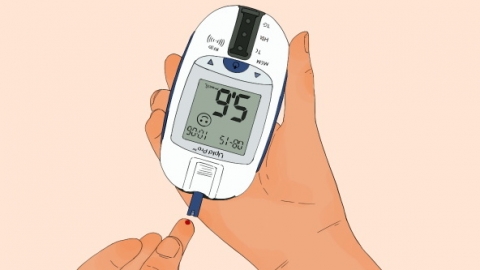What does type 2 diabetes mean?
Type 2 diabetes is a common metabolic disease characterized by abnormal blood glucose regulation due to insulin resistance or relative insulin deficiency, primarily manifesting as chronic hyperglycemia. If abnormalities are detected, timely medical consultation is recommended. Detailed analysis is as follows:

In most cases of early-stage type 2 diabetes, patients experience mild elevation of blood glucose, which may be asymptomatic or present only with mild symptoms such as increased thirst, frequent urination, and fatigue. At this stage, blood glucose can be effectively controlled and disease progression delayed through lifestyle modifications, such as managing carbohydrate intake, increasing physical activity, and losing weight, along with oral hypoglycemic medications.
As the disease progresses, poor long-term glycemic control can lead to multiple chronic complications, including diabetic retinopathy, diabetic nephropathy, peripheral neuropathy, and cardiovascular or cerebrovascular diseases, manifesting as vision loss, proteinuria, numbness in hands and feet, chest pain, and other symptoms. At this stage, intensified glycemic management may be required, potentially involving combination therapy with multiple antidiabetic medications or insulin injections. Simultaneously, controlling blood pressure, lipid levels, and other parameters is essential to prevent worsening of complications.
After diagnosis of type 2 diabetes, it is important to strictly follow medical advice regarding medication, regularly monitor blood glucose, glycated hemoglobin, and indicators of complications, maintain regular physical activity, adopt a low-salt and low-fat diet, and avoid staying up late or excessive fatigue.








